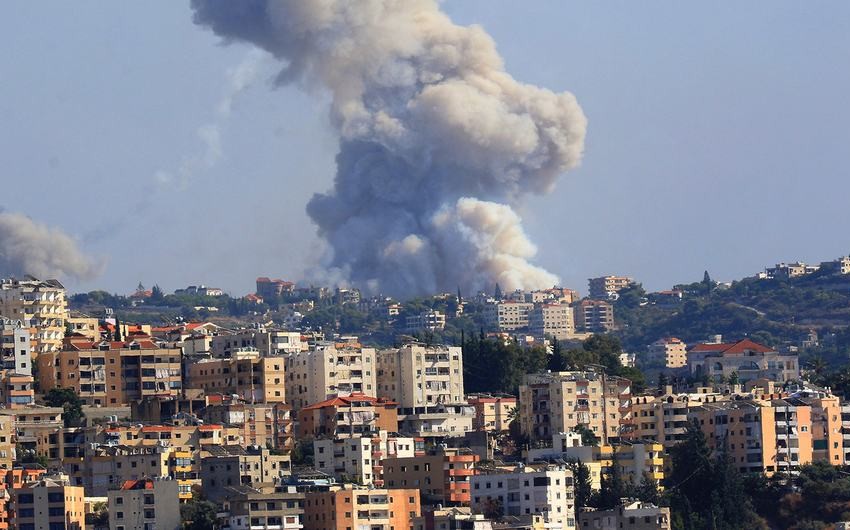Israel’s security cabinet is set to approve a US plan for a ceasefire with Hezbollah in Lebanon when it meets on Tuesday afternoon, Israeli media said, Report informs via BBC.
US and Lebanese officials have expressed optimism that a deal is possible to end over a year of conflict that intensified in September, and Prime Minister Benjamin Netanyahu has reportedly agreed to its terms in principle.
The proposal includes a 60-day ceasefire that will see the withdrawal of Israeli troops from Lebanon and the removal of Hezbollah fighters and weapons from south of the Litani River.
Thousands of troops from the Lebanese Army will be deployed, and an international committee will monitor the implementation of the ceasefire.
On Tuesday, the Israeli military carried out new air strikes in the southern suburbs of Beirut and Hezbollah fired rocket barrages into northern Israel.
The details of the proposed agreement are unclear, but it is understood to be based on the terms of UN Security Council resolution 1701, which ended the 2006 war between Israel and Hezbollah.
The resolution requires, among other things, Hezbollah to remove its fighters and weapons from the area between the Blue Line – the unofficial border between Lebanon and Israel – and the Litani river, about 30km (20 miles) to the north. Israel says that was never implemented, while Lebanon says Israel’s violations included military flights over its territory.
During the current US-led talks, according to a Western diplomat who spoke on condition of anonymity, it has been made clear to the Lebanese authorities that the post-2006 situation, in which Hezbollah was allowed to build extensive infrastructure along the border, will not be repeated.
So one of the key points seems to be the implementation of the deal. The US will lead a five-country monitoring committee, while the UN peacekeeping force in the south of Lebanon (Unifil) will be reinforced.
During the 60-day ceasefire, the Lebanese Army is expected to deploy 5,000 troops to the south, although questions remained about their role in enforcing any agreement, and whether they would confront Hezbollah if needed, which has the potential to exacerbate tensions in a country where sectarian divisions run deep.
The army has also said it does not have the resources - money, manpower and equipment - to fulfil its obligations under the deal, which will probably be alleviated by contributions from some of Lebanon’s international allies.
But there had been an acceptance by Lebanese authorities that things had to change, the diplomat added, and there was the political will to do so.
Media reports suggest the US will issue a letter supporting Israel’s right to act in Lebanon if Hezbollah is perceived as being in violation of the deal.
This Israeli demand has been rejected by Lebanon, where it is seen as a violation of the country’s sovereignty. It has not been included in the proposal deal, and will probably be made public later.
In the past few days, Israeli authorities have repeatedly said that, with or without this guarantee, they reserved the right to attack Lebanon if there was any threat coming from Hezbollah, as they already do in Syria.


 https://static.report.az/photo/e216abcf-74fb-3753-8233-cc4193ef83d8.jpg
https://static.report.az/photo/e216abcf-74fb-3753-8233-cc4193ef83d8.jpg

